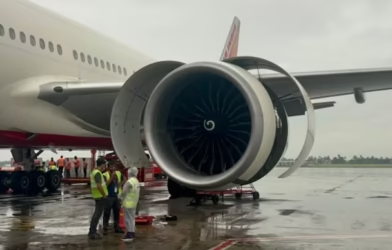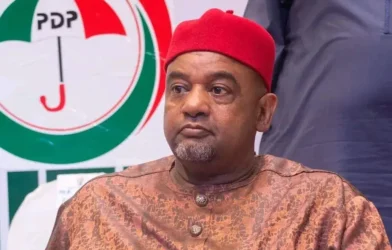As both the new and the old naira notes remain scarce around the country, operators of Point of Sale, popularly known as POS have become the new lords.
Before the redesigning of N200, N500 and the N1,000 bank notes by the Central Bank of Nigeria (CBN), POS operators had a standard charge for the disbursement of various amounts of cash to customers.
The charge for every N10,000 disbursed to customers was usually N100, and as a customer moved to higher sums, the charges grew in the same sequence. This means that every amount above N10,000 withdrawn attracts 10 percent of the amount.
In most cases, customers who want to withdraw or deposit huge amounts always attract discounts. For example, to withdraw or pay in N100,000 can attract a discount depending on the POS operator, and this may come low to just N700 or N800 as charge.
Times have, however, changed and the previous regulation and leniency, which users of the POS enjoyed have been demolished. This is as there is no longer any standard charge for using POS, as what mattered more is the availability of cash.
Customers simply agree to any amount charged as commission by the operators, depending on the availability of cash.
Though most POS operators in the city denied having cash, others who accepted having cash, charged as much as N4,000 for every N10,000 demanded.
“This N10,000 you want to collect is my last money. I’m just accepting to give it to you because you need cash,” a POS operator, Miss Chidera Mmasi told DAILY POST.
Meanwhile, at Eke Awka market, the biggest market in the capital city, POS operators charged N1,000 for every N10,000 withdrawn, a standard in the market.
Our correspondent, who visited the market, observed that there is a surge in every POS operator’s stand in the market as many traders have stopped accepting transfers.
A provision dealer, whose name was not ascertained said: “What is the use of accepting transfers and when I want to buy goods, I will still use a huge amount to withdraw the money. Who is fooling who? If I do it, the profit I gained from the goods I sold will be lost. So, let the customers be the ones to look for the cash, get it and use it to buy from us.”
A food vendor, Miss Ifunanya Eze said: “I sell a plate of food for N1,000. I accept transfers, but if you must pay through transfer, you will pay N1,200 for a plate because I have to use N200 as the service charge to withdraw the money when I want to buy foodstuff.”
A civil servant, Mr Peter Ubaka decried the lack of coordination in the charges demanded by POS operators, saying that they were ripping Nigerians off simply because everyone needs cash.
“Today, right before me, a POS operator, who was charging N4,000 for every N10,000, collected the same N4,000 to give a guy N6,000. The guy said he needed the money, and the POS operator had exhausted her cash. She had only N6,000, and since there were other people who wanted to take N5,000, N3,000, and the guy wanted N10,000, but since the POS girl didn’t have up to that, she insisted on taking N4,000 charge for N6,000.
“I was so mad at the girl. This is exploitative. How did roadside girls who we used to dash free money after making transactions, suddenly become kings, such that every morning, people cluster in their stands to wait for them, and even call them to ask if they are coming to work, and if they had cash? I can’t understand. This should be checked,” he fumed.
Meanwhile, checks by DAILY POST showed that the cash being disbursed by POS operators is also not easy to get, as many of them go through unconventional means to get the money.
Many of the POS operators, according to investigation, get the money from various sources, just to service their customers and remain in business.
“We go to banks and wait for people who are coming to bank to deposit money. We intercept them and make deals, and then transfer to them, and then collect their cash. There are people who still do businesses that are cash based,” a POS operator explained.
Checks showed that some of the POS operators also make arrangements with fuel stations, meet them after a day’s sales and pick up their cash, instead of allowing them to take them to the bank.
The POS agent explained that: “That is how I have been getting cash to give to my staff. But many people have joined that route, and it is now difficult to find cash. Banks won’t give you, if you go to an ATM, you will fight and fight, only to get N10,000 or N20,000. It is hard for everybody. We too, we are just trying to survive.”
President Muhammadu Buhari has, however, promised to look into the new naira notes policy of the CBN and avert the sufferings of Nigerians.
Meanwhile, as the February 10 deadline for the use of the old notes draws near, there may be a worsened scenario in the country, as Nigerians may again start rejecting the old notes as it happened last week before the deadline was extended. This is if there is no further extension of the deadline by the CBN.












Comments are closed